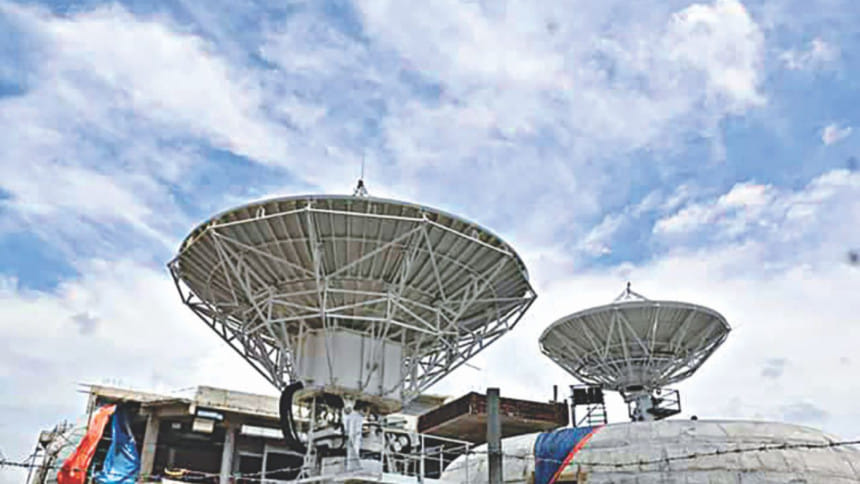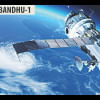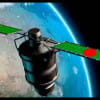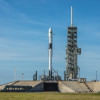Bangabandhu Satellite: Waiting in the wings

Bangabandhu-1, the first commercial satellite of the country, is likely to be sent into orbit next month and it will be ready for use in three months after the launch.
The satellite is all set for the launch, said Shahjahan Mahmood, chairman of Bangladesh Telecommunication Regulatory Commission (BTRC), which is dealing with the much-talked-about project.
French company Thales Alenia Space, designer and maker of Bangabandhu-1, has already carried out several test runs. It is now waiting to hand over the satellite to the launching station in Florida, US.
Initially, the launch was scheduled for Victory Day 2017. However, it was postponed until this March after Hurricane Irma and subsequent floods hit Florida, said officials concerned.
Talking to The Daily Star recently, Posts and Telecommunications Minister Mustafa Jabbar said, “Right now it's confirmed that it [the satellite] won't be launched in March. It could be anytime in the first half of April.
“The launching station will give the go-ahead 15 days before the launch. Nothing can be said before that confirmation,” he added.
Asked about the possible date of the launch, the BTRC chairman echoed the minister's comment. “Whenever we get the date, the French company will transport the satellite to Florida from France.”
Bangabandhu-1, to be launched from Florida's Space X launch pad, would take eight days to reach its orbital slot at 119.1 degrees East, he said.
The satellite will need three weeks to reach its exact position in space, said officials concerned, adding that it would be ready for commercial use in another two months.
Mustafa Jabbar said the government, which termed Bangabandhu-1 a “national pride”, was making huge preparations for celebrating the launch.
“We will organise a massive nationwide celebration as this will be one of the biggest achievements of the country,” he said.
Prime Minister Sheikh Hasina will watch the launch live from Dhaka through video conference while her ICT Affairs Adviser Sajeeb Wazed Joy will be present at the launching station for monitoring, he added.
A 22-member team, led by Tarana Halim, state minister for information, will also be in Florida during that time. Tarana was the state minister for telecom around two months ago.
Talking about the benefits of the satellite, project officials said it would immensely contribute to the digital advancement of the country.
Currently, Bangladesh meets its demand for satellite connectivity by renting bandwidth from foreign operators which costs the country about $14 million a year. Once launched, Bangabandhu-1 will save the foreign currency expenditure.
It will also improve the Direct to Home (D2H) services, making people's access to worldwide TV entertainment faster and easier.
Bangabandhu-1 will have 40 transponders and three of them would be used for broadcasting TV channels.
The country's remote parts -- haors, coastal areas and deep-sea zones -- will also have impressive internet connectivity. It will also be helpful for distance learning, treatment, and improvement of weather forecast facilities.
“The satellite will be a game changer in rescue operations after natural disasters,” said the BTRC chairman.
MONOPOLY IN TELECAST INDUSTRY?
There are concerns that the launch of the satellite might lead to a monopoly in the country's telecast industry.
Currently only two companies -- Beximco and Buyer Media Ltd -- have the D2H licence.
Asked, the BTRC chairman said the information ministry awarded the licence to the two companies years ago and that the telecom regulator had nothing to do with the matter.
He also said only the licence holders would be able to provide the service.
Recently, Beximco and Buyer Media Ltd have sought from Bangabandhu Satellite Communication Bangladesh Company Ltd lease of 12 of the 40 transponders to sell frequencies to local TV channels, said project officials.
Bangabandhu Satellite Communication Bangladesh Company Ltd was formed to run businesses generated from the satellite.
“Right now, these two companies have the right to handle satellite issues and that's why they might get some extra privileges,” said another relevant official, wishing not to be named.
However, the BTRC chairman said he was not sure whether the government had decided to sell the frequencies to TV channels through the companies.
On the other hand, the telecom ministry has recently invited expression of interest to sell transponder bandwidth.
Contacted, Naim Mohammad Fazlun, chief operating officer of AND Telecom Ltd, one of the leading satellite connectivity sellers in the country, said the government should set guidelines on the issue as it also plans to sell frequencies to other countries.
With a lifespan of 15 years, Bangabandhu-1 is expected to provide services to all South Asian countries as well as Indonesia, the Philippines, Turkmenistan, Kyrgyzstan and Tajikistan, if its frequency is properly utilised, according to project documents.
The project was initially worth Tk 2,967 crore. It was revised down to
Tk 2,902 crore later. Of the amount, HSBC Bank supplied €155 million (approximately over Tk 1,585 crore) while the rest is coming from the government.
Thirty employees of the BTRC and the newly-formed Bangladesh Communication Satellite Company Ltd have received training on running the satellite efficiently.
They would be stationed at the two landing stations in Gazipur and Rangamati. Officials from the French company would also be there for the next three years.
The construction work of the landing station in Gazipur is almost done while the one in Rangamati would need a few more days, said project director Mesbahuzzaman.
TV STATIONS WAITING
Project sources said relevant officials have already met top officials of satellite TV channels, who talked about their demands and received feedback.
As many as 30 stations have jointly demanded 90 megahertz and that could be provided with three transponders.
“We will have a trial run after the launch of the satellite and then we will jointly make our final decision,” said Mozammel Haque Babu, chief editor of Ekattor TV.
“Bangabandhu-1 is our national pride. Though this satellite would be far from the one being used by the TV channels now, we will try to make adjustments,” he said.
A top official of another station said they were yet to get the technical specifications from the Bangabandhu-1 satellite authorities. “They told us that we will get that information after the launch,” said the official, requesting anonymity.
Currently, all private TV channels in Bangladesh use Apstar-7 satellite, which is at 76.5 degrees East. Only government-owned BTV uses Asiasat-7, another satellite, which is at 105.5 degrees East.
As Bangabandhu-1 satellite would be far away from Dhaka, the BTRC would also establish two separate Career Monitoring System stations -- one in Indonesia and the other in the Philippines -- under the project.
“From those two stations we can easily monitor our satellite as its geographical location will be in that area,” said another official, wishing not to be named.

 For all latest news, follow The Daily Star's Google News channel.
For all latest news, follow The Daily Star's Google News channel. 








Comments